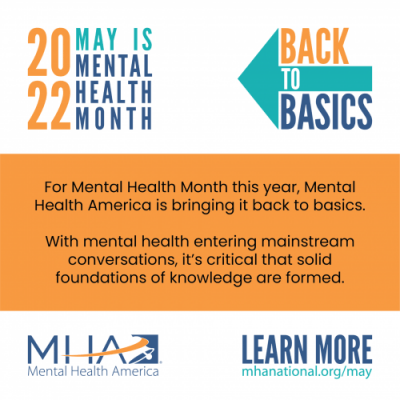Since the start of the pandemic, more and more people are talking about mental health. An increasing number of folks are starting to see mental health for what it is: one important component of your overall health and well-being, just like your physical health. But mental health conditions, resources, and conversations can still feel complicated and out of reach.
Are there common warning signs for mental health conditions or crises? Are there specific factors that can lead to mental health conditions or even crises? What resources are out there – and how do I know if they’re right for me?
There’s often no one single cause for a mental health condition. Instead, there are many possible risk factors that can influence how likely a person is to experience a mental health condition or how serious the symptoms may be.
Some risk factors for mental health conditions include: trauma, which can be a one-time event or ongoing; your environment and how it impacts your health and quality of life (also known as social determinants of health like financial stability and health care access); genetics; brain chemistry; and your habits and lifestyle such as a lack of sleep.
Of course, understanding the risk factors for a mental health condition can be more difficult when it’s your own mental health. Take time to ask yourself about your thoughts, feelings, and behaviors to see if this is part of a pattern that may be caused by a mental health condition. Here are some questions to get you started:
- Have things that used to feel easy started feeling difficult?
- Does the idea of doing daily tasks like making your bed now feel really, really hard?
- Have you lost interest in activities and hobbies you used to enjoy?
- Do you feel irritated; possibly to the point of lashing out at people you care about?
Our society focuses much more on physical health than mental health, but both are equally important. If you are concerned about your mental health, there are several options available. You are not alone – help is out there, and recovery is possible. It may be hard to talk about your concerns, but simply acknowledging to yourself that you’re struggling is a really big step.
Taking a screen at mhascreening.org can help you to better understand what you are experiencing and get helpful resources. After that, consider talking to someone you trust about your results, and seek out a professional to find the support you need. While you may not need this information today, knowing the basics about mental health will mean you’re prepared if you ever need it. Go to https://mhanational.org/ to learn more.
Tip! Maintaining Good Mental Health: Whether you realize it or not, mental health plays a big role in your overall well-being. When you’re mentally healthy, you are able to enjoy your life and the people in it, feel good about yourself, keep up good relationships, and deal with stress. It’s normal for your mental health to shift over time – we all face difficult situations in our lives. Creating positive habits is a great way to support your mental health when you’re doing well. They also help you build skills to use if you do face symptoms of a mental health condition.

